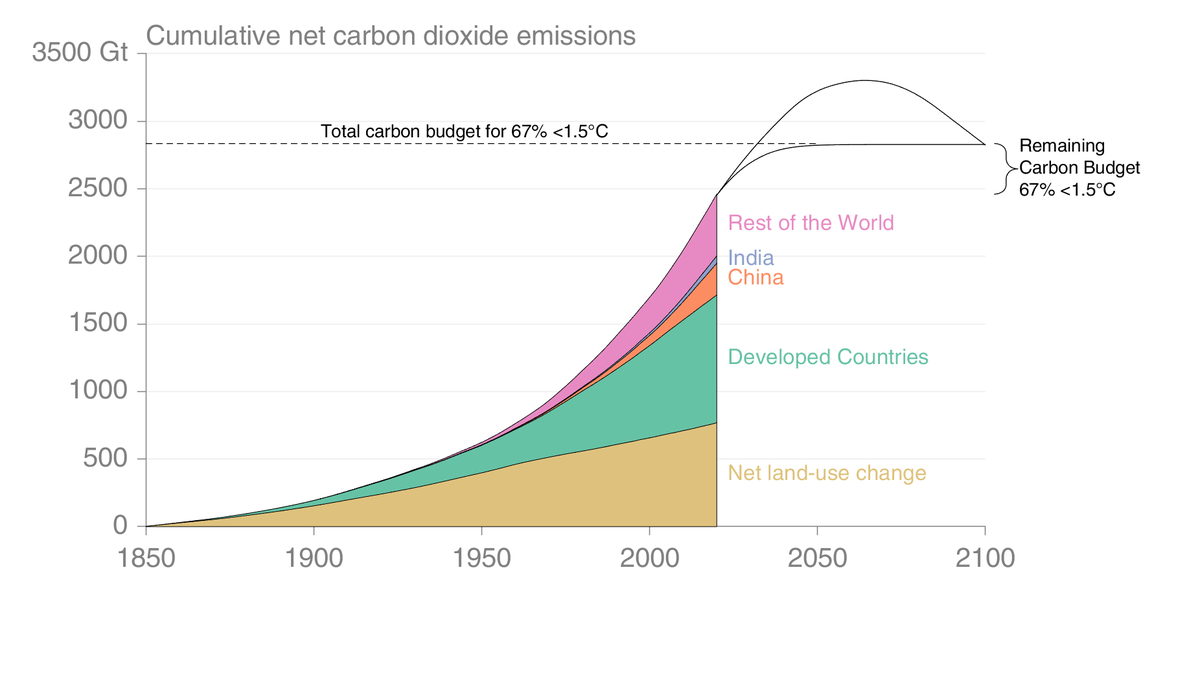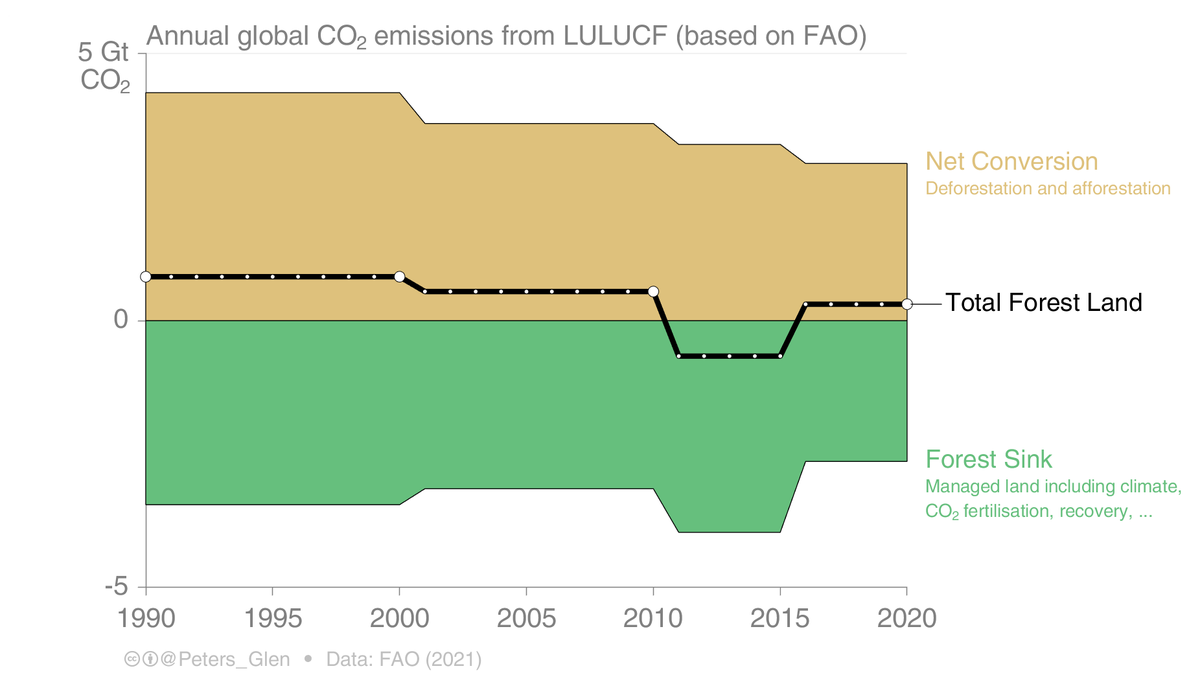
THREAD🧵
Is it time to move beyond net zero emissions & start discussing net negative emissions?
Why? To allow developing countries to reach net zero later (fairness) & help them escape poverty while still limiting warming to 1.5°C.
@aniruddh_mohan sciencedirect.com/science/articl…
1/
Is it time to move beyond net zero emissions & start discussing net negative emissions?
Why? To allow developing countries to reach net zero later (fairness) & help them escape poverty while still limiting warming to 1.5°C.
@aniruddh_mohan sciencedirect.com/science/articl…
1/

The carbon budget for 1.5°C is depleting rapidly, with a large share used by today’s developed countries.
Even if developed countries mitigate fast, the carbon space remaining for developing countries is minuscule.
(also see cicero.oslo.no/no/posts/cicer…)
2/
Even if developed countries mitigate fast, the carbon space remaining for developing countries is minuscule.
(also see cicero.oslo.no/no/posts/cicer…)
2/

If global CO₂ emissions stay at net zero, either:
* All countries need to be net zero ~2050, or
* Rich countries have net negative emissions post-2050, allowing developing countries to emit longer post-2050.
3/
* All countries need to be net zero ~2050, or
* Rich countries have net negative emissions post-2050, allowing developing countries to emit longer post-2050.
3/

If the world exceeds the 1.5°C carbon budget, then global net negative CO₂ emissions are required to return back to 1.5°C.
In this case, the net negative emissions reverse previous warming rather than allowing fairness (though, both are possible).
4/
In this case, the net negative emissions reverse previous warming rather than allowing fairness (though, both are possible).
4/

Our scenarios are illustrative & selected to highlight choices, but they clearly show the flexibility for developing countries if the OECD and China get to net zero earlier and ultimately maintain net negative emissions.
5/
5/

There are risks, obviously.
Developed countries have delayed adequate climate action for the past two decades, there is a real prospect of net-negative emissions turning into a never-ending promise of paying back initial “carbon debt” sometime later.
6/
Developed countries have delayed adequate climate action for the past two decades, there is a real prospect of net-negative emissions turning into a never-ending promise of paying back initial “carbon debt” sometime later.
6/
Developing countries must therefore be wary of moving from demanding immediate and steep emission reductions to shifting attention toward Carbon Dioxide Removal (CDR).
7/
7/
The demand for net negative emissions from developed countries needs to be stated.
If a developing countries pledges net-zero emissions post-2050, then to be consistent with 1.5°C it may have to depend on net negative emissions from developed countries, even if not stated.
8/
If a developing countries pledges net-zero emissions post-2050, then to be consistent with 1.5°C it may have to depend on net negative emissions from developed countries, even if not stated.
8/
There has been increasing attention on the need for CDR, either as a way to balance residual emissions or to undo previous warming.
There has been much less discussion on CDR as a way to facilitate fairness.
9/
There has been much less discussion on CDR as a way to facilitate fairness.
9/
There have been hefty critiques of net zero in the past year, but maybe a shift from net zero to net negative and fairness shifts the focus?
(also see rdcu.be/b0jAr)
10/
(also see rdcu.be/b0jAr)
10/
With this new article, we hope to begin that discussion, while noting the risks that the discussion involves.
So, get discussing…
sciencedirect.com/science/articl…
11/11
So, get discussing…
sciencedirect.com/science/articl…
11/11
And here is a link with 50 days access sciencedirect.com/science/articl…
• • •
Missing some Tweet in this thread? You can try to
force a refresh
















